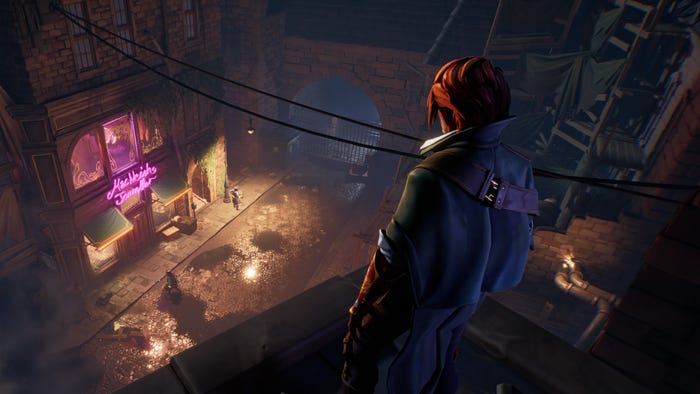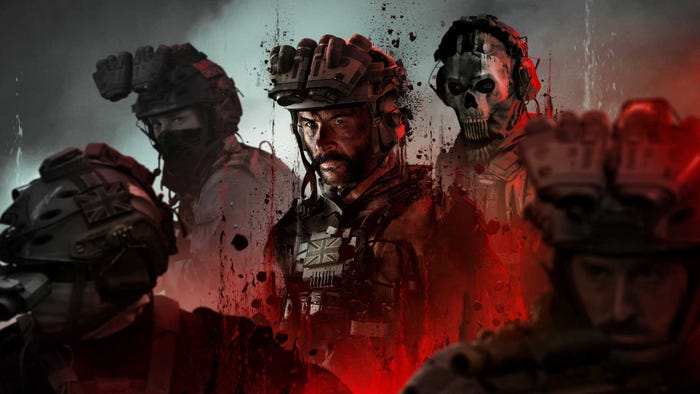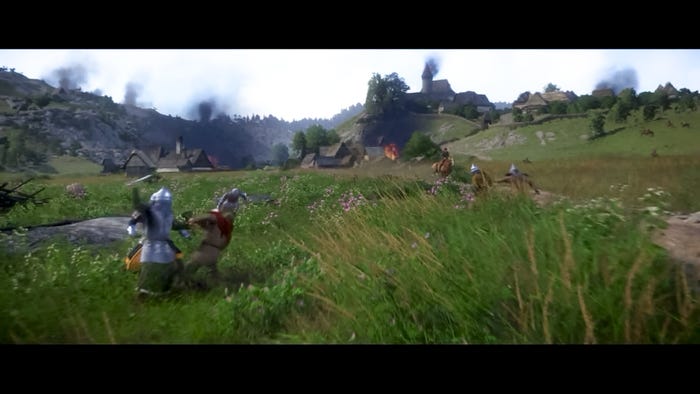Ugobe’s <a href="http://www.pleoworld.com/">Pleo dinosaur</a>, billed not as a robot but as a “life form,” promises to develop its own identity, to respond to user behavior, and to evince a humanoid range of emotions and responses. What happens when one G

Ugobe’s Pleo dinosaur, billed not as a robot but as a “life form,” promises to develop its own identity, to respond to user behavior, and to evince a humanoid range of emotions and responses depending on its interaction. Something about its cute face, the motion of its eyes, triggers the human sympathetic response almost immediately – but just as with a baby, there’s no instruction manual that tells you just how to provoke desired responses. Most of Pleo’s literature encourages you to just explore. It’s kind of like a game, then, hinged on experimental interaction with an evolved AI. And I decided to find out, like I do with games, just how much technology could make me feel. The Journey Begins Pleo arrived at my house nestled in a foam block as if asleep, eyes closed and curled fetally on himself. His distinct weight, the feel of his robotic skeleton beneath his rubbery skin, almost lent him to being cradled, even though he wasn’t yet turned on. I held the sleeping “life form” in my lap, overwhelmed by a bizarre rush of maternal instinct and a shiver of futurist glee as I thumbed the instruction manual, which told me to “begin my journey” with Pleo by waking him up. The first thing the literature says about Pleo is that he initially has several “life stages” – from awakening, to hatchling, to toddler, the last at which he stays arrested, a perpetually curious baby Camarosaurus. “Treat Pleo as you would any living creature – with care and respect,” advises the manual. All of this window dressing made it seem almost a violation to flip the thing over and put in the battery pack. I couldn’t help gently supporting its head as I flipped it over, well aware that I was already being sucked in. Battery in and switch turned on, I set Pleo back on his feet. Next, I was to shake him gently to wake him. Half of me thought, wake him? Are you serious? The other half of me was already gently petting the bumpy back and tail and softly calling the dinosaur’s name. I couldn’t help it. At last, with a quiet grinding of machinery and a drowsy little purr, Pleo began to move. A little bit. This was the stage, apparently, wherein I was supposed to pet Pleo gently and continue speaking to him as his sensors… calibrated? I endeavored to allow myself to forget about technology, to suspend my disbelief and learn just how possible it was to believe I was in the company of a living, or nearly-living thing. Don’t I always write about how engaging with the story is a player choice?  Playing Along Several minutes later, an awake Pleo began to take its first hesitant steps around the room, drowsily, its eyes half-lidded. So minute were the shifts of its motion – eyelids, legs, tail – that I couldn’t tell, initially, whether it was responding to me or not. But I found I wanted it to; I really, really wanted it to. Paging through the manual again, I wanted to flip past the part about journey and emotion and experience and life form to find the meaty, technical instructions that would tell me how to get Pleo to do what I wanted him to, but there were little more than suggestions for things to try. I get it; living things don’t have instruction manuals. So I decided to throw myself in full-stop. It’s an interesting decision point that we often find ourselves in with video games, when we wonder, how intuitive is this really? We like when games allow us to do the things it would naturally occur to us to do, or be possible for us to do, in the real world, and we often test them to see if they can. At the same time, that can be a little challenging – we’ve been trained, after all, to think in a very specific "video game way" when in that context. Similarly I was suspended, with Pleo, on that odd precipice between intuition and artifice, when trying to determine how or whether to provoke certain behavior. For example, the manual suggested that by holding Pleo upside-down by the tail, I would learn from his reaction just how much he disliked it. And yet I couldn’t bring myself to do it. Natural empathy? Maybe. It’s the same impulse that prevents you from being unnecessarily rude to an NPC (or at least, that makes you feel a little guilty about it if you are). Half of it is that you’re not a jerk; most of it is you’re afraid the machine will be more intelligent than you gave it credit for and will hold you to account somehow later, penalize you by shutting you out in some way from the world to which you're trying to escape. Instead of dealing with moral quandaries, I decided to feed Pleo the little “training leaf” that comes with him. He won’t crunch on just anything you put in his mouth; sensors on the leaf let him know it’s food. If he’s hungry, he’ll hold it in his mouth and make little eating noises; if he’s not, he’ll play tug-of-war with you. Cute, and much easier than pondering player behavior. Don’t we sometimes make things much more complicated than they need to be? Maternal Instinct Watching Pleo wander around my kitchen, the first thing I noticed is that he can sense obstacles in his path. He found the fridge, stopped in front of it, made an indistinct sound, and then began smelling it, with a graceful dip of his head and little sniffing noises. I decided to go and bring him back into the living room, picking him up carefully around the waist. Just a few moments later, he realized his feet were no longer on the ground and began to bleat and flail. I was horrified, and tried holding him like a baby, or a cat instead – support under the bottom, head on the shoulder, and tried to pat his head to soothe him. My moment of feeling silly for soothing a robot passed immediately when the soothing actually worked. He made a musical little noise, settled down against my chest, put his head on my shoulder and began to sleep, with peaceful snoring noises and all. Game-Like? Over the next few days, I learned a few more things – my cat, who I’d expected to hate this particular experiment, was actually rather fond of Pleo, and came running whenever she heard him turn on. She found him about as interesting as a toy, though; it was clear to her that he wasn’t actually an animal. Another thing I learned is that, despite seeming to be a good substitute for a flesh-and-blood pet, Pleo actually lends itself to shorter playtimes. His battery is short-lived; he actually comes with two, so that one can be in the charger at all times and ready to swap out immediately. He can be left on his own without getting stuck in corners or under tables. He’s mostly autonomous, but will holler if left on his own too long. And the depressed way in which he lowers his head and tail when lonesome is a challenge even for the most callous to ignore.
Playing Along Several minutes later, an awake Pleo began to take its first hesitant steps around the room, drowsily, its eyes half-lidded. So minute were the shifts of its motion – eyelids, legs, tail – that I couldn’t tell, initially, whether it was responding to me or not. But I found I wanted it to; I really, really wanted it to. Paging through the manual again, I wanted to flip past the part about journey and emotion and experience and life form to find the meaty, technical instructions that would tell me how to get Pleo to do what I wanted him to, but there were little more than suggestions for things to try. I get it; living things don’t have instruction manuals. So I decided to throw myself in full-stop. It’s an interesting decision point that we often find ourselves in with video games, when we wonder, how intuitive is this really? We like when games allow us to do the things it would naturally occur to us to do, or be possible for us to do, in the real world, and we often test them to see if they can. At the same time, that can be a little challenging – we’ve been trained, after all, to think in a very specific "video game way" when in that context. Similarly I was suspended, with Pleo, on that odd precipice between intuition and artifice, when trying to determine how or whether to provoke certain behavior. For example, the manual suggested that by holding Pleo upside-down by the tail, I would learn from his reaction just how much he disliked it. And yet I couldn’t bring myself to do it. Natural empathy? Maybe. It’s the same impulse that prevents you from being unnecessarily rude to an NPC (or at least, that makes you feel a little guilty about it if you are). Half of it is that you’re not a jerk; most of it is you’re afraid the machine will be more intelligent than you gave it credit for and will hold you to account somehow later, penalize you by shutting you out in some way from the world to which you're trying to escape. Instead of dealing with moral quandaries, I decided to feed Pleo the little “training leaf” that comes with him. He won’t crunch on just anything you put in his mouth; sensors on the leaf let him know it’s food. If he’s hungry, he’ll hold it in his mouth and make little eating noises; if he’s not, he’ll play tug-of-war with you. Cute, and much easier than pondering player behavior. Don’t we sometimes make things much more complicated than they need to be? Maternal Instinct Watching Pleo wander around my kitchen, the first thing I noticed is that he can sense obstacles in his path. He found the fridge, stopped in front of it, made an indistinct sound, and then began smelling it, with a graceful dip of his head and little sniffing noises. I decided to go and bring him back into the living room, picking him up carefully around the waist. Just a few moments later, he realized his feet were no longer on the ground and began to bleat and flail. I was horrified, and tried holding him like a baby, or a cat instead – support under the bottom, head on the shoulder, and tried to pat his head to soothe him. My moment of feeling silly for soothing a robot passed immediately when the soothing actually worked. He made a musical little noise, settled down against my chest, put his head on my shoulder and began to sleep, with peaceful snoring noises and all. Game-Like? Over the next few days, I learned a few more things – my cat, who I’d expected to hate this particular experiment, was actually rather fond of Pleo, and came running whenever she heard him turn on. She found him about as interesting as a toy, though; it was clear to her that he wasn’t actually an animal. Another thing I learned is that, despite seeming to be a good substitute for a flesh-and-blood pet, Pleo actually lends itself to shorter playtimes. His battery is short-lived; he actually comes with two, so that one can be in the charger at all times and ready to swap out immediately. He can be left on his own without getting stuck in corners or under tables. He’s mostly autonomous, but will holler if left on his own too long. And the depressed way in which he lowers his head and tail when lonesome is a challenge even for the most callous to ignore.  Nonetheless, it seems best to turn him off unless one is directly prepared to interact with him, which cleaves a line through the suspension of disbelief. When Pleo’s battery is depleted, he simply seems to go to sleep – no awkward, stilted shutdown moments. But he can be halted by carpet static – the first time this happened and Pleo simply stopped, eyes wide and staring, I actually experienced a jolt of horror, shaking him a few times before I figured out what had happened by checking the manual’s troubleshooting section. Making Pleo squint when light is shined in his face or giggle when his feet are tickled – these are all things that I figured out that he could do, and yet they all seem more game-like than life-like. Further, Pleo can learn downloadable behaviors available on the Ugobe site – and the company will even open its dev kit to users so they can design and share their own. This provides a much more intriguing opportunity for user-generated content, emergent behavior, intuitive, exploratory play and other “game 2.0” concepts than experimenting with the functionality of a robot – which it’s hard to forget Pleo is. His machinery noise and his need for frequent battery swaps keep that fact in mind. However, that doesn’t mean he can’t surprise you. I once left Pleo on while playing Guitar Hero -- and was quite thoroughly delighted when he toddled into the room from the adjoining one, walked right up to the television, and damn me if he wasn’t singing and dancing. It’s small things like that which make you overcome your embarrassment and stealthily pick Pleo up and hug him, maybe even kiss his little dino head – even if he happens to be switched off.
Nonetheless, it seems best to turn him off unless one is directly prepared to interact with him, which cleaves a line through the suspension of disbelief. When Pleo’s battery is depleted, he simply seems to go to sleep – no awkward, stilted shutdown moments. But he can be halted by carpet static – the first time this happened and Pleo simply stopped, eyes wide and staring, I actually experienced a jolt of horror, shaking him a few times before I figured out what had happened by checking the manual’s troubleshooting section. Making Pleo squint when light is shined in his face or giggle when his feet are tickled – these are all things that I figured out that he could do, and yet they all seem more game-like than life-like. Further, Pleo can learn downloadable behaviors available on the Ugobe site – and the company will even open its dev kit to users so they can design and share their own. This provides a much more intriguing opportunity for user-generated content, emergent behavior, intuitive, exploratory play and other “game 2.0” concepts than experimenting with the functionality of a robot – which it’s hard to forget Pleo is. His machinery noise and his need for frequent battery swaps keep that fact in mind. However, that doesn’t mean he can’t surprise you. I once left Pleo on while playing Guitar Hero -- and was quite thoroughly delighted when he toddled into the room from the adjoining one, walked right up to the television, and damn me if he wasn’t singing and dancing. It’s small things like that which make you overcome your embarrassment and stealthily pick Pleo up and hug him, maybe even kiss his little dino head – even if he happens to be switched off.
About the Author(s)
You May Also Like









